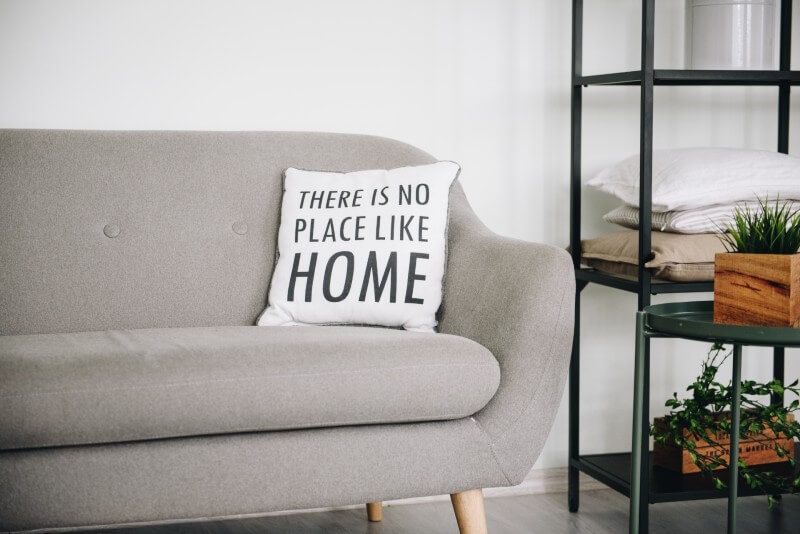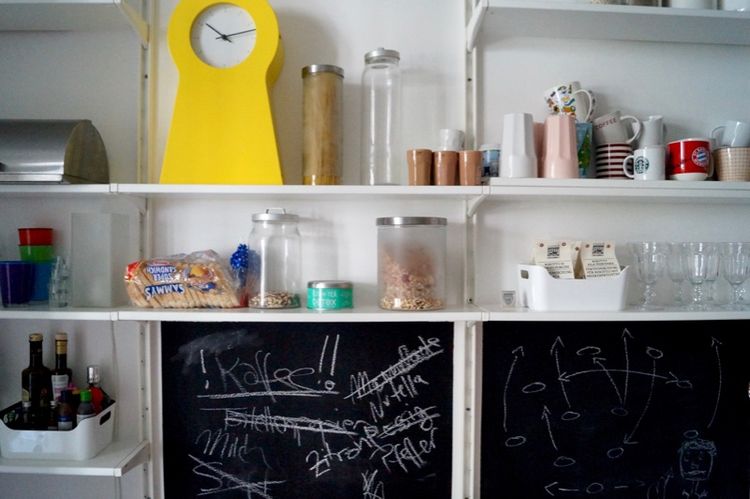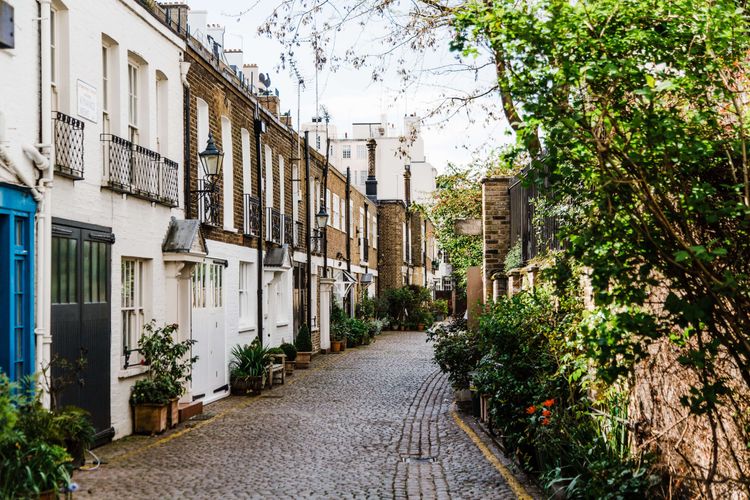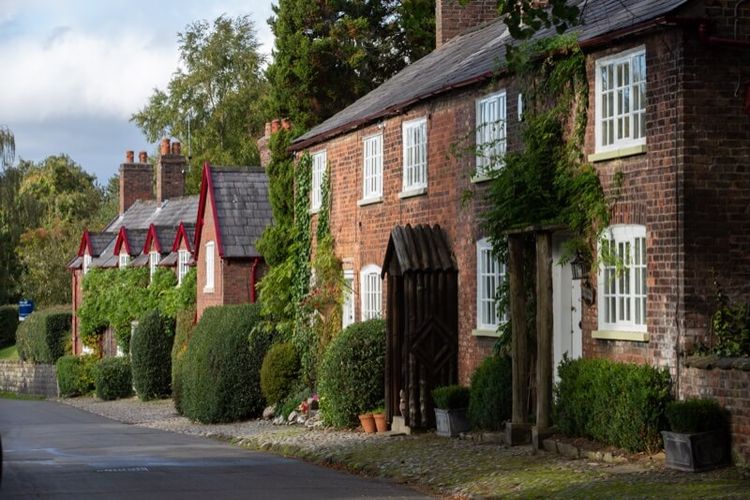Transitioning from renting to owning

The transition from renting to owning is significant. When buying a home, it’s important to ensure that you access all the help you can.
We're taking a look at what's involved when leaving the world of renting to buy a house. Where to start, things to consider and whether buying a home is the right thing for you.
Where do I start?
Having a budget and saving are a big help when it comes to buying a home. Saving for your initial deposit is hard work and it's likely that you'll have to face some sacrifices in order to buy a house.
Recent data has shown that first time buyers are now putting down an average deposit of between 15 and 18%.* Typically, the bigger your deposit in relation to the value of the property you buy, the lower your monthly mortgage repayments. As such, it will help to focus on your savings pot. It’s tricky saving for a deposit to buy a home, especially when you’re renting.
But when you're saving for a house, holidays and shopping sprees will have to drop down your priority list. If you're currently renting, try to get into the habit of keeping an eye on your spending. There are now plenty of apps that you can download straight to your smartphone to help you keep track. It’s also worth having an accurate spreadsheet of your incomings and outgoings to keep yourself responsible.
Look at your credit rating
If you want to buy a home using a mortgage, it's useful to get a copy of your credit report. There are a number of companies offering this service and it's usually quick and easy to do, although you may have to pay for it. Mortgage lenders don't like missed credit card or loans payments(amongst other things) so be sure not to fall behind on these.
Similarly, it can work against you if you've got no credit history at all. It can help you be more favourable to lenders if you can show that you've handled previous credit responsibly. On this basis, it can be worthwhile obtaining a small amount of credit to show that you can keep up with any repayments. If you have a mortgage advisor, they should be able to provide help and advise you about this, along with any other affordability checks that will be relevant. When you apply for a mortgage, you'll need to be able to evidence your income and outgoings. This is to enable the lender to assess, as far as they can, that you can afford to pay your mortgage.
Consider other options
There are other pathways to buying a house beyond traditional mortgages. For example, the shared ownership scheme initiated by the Government. This is where you buy a percentage of the property and pay rent on the rest to a housing association.
Consider also whether buying is, in fact, a better option for you than renting. It would never be advisable to be in over your head all for the sake of owning a home, particularly given that a failure to pay your mortgage may lead to your home being repossessed.
It's always worth seeking independent, professional advice from a mortgage and financial adviser when buying a house. It might be that it's simply not the right time for you to buy.
The additional costs of moving from renting to owning
When you buy your home, it comes with additional costs that need to be paid, some upfront and some along the way. These should be factored in when you’re planning your budget and saving timeline. Some of the things you could have to pay for upfront are:
- Survey costs.
- The valuation fee.
- Legal fees of your Solicitor or conveyancer.
- Additional fees associated with leasehold property
- Stamp duty(subject to your status and the price of your property).
- A mortgage lender will typically charge a fee as well
And this is before we've even mentioned the general costs of moving, for example if you use a removals service and your deposit. Remember that you'll also be required to pay rent until the process is completed. There are other things to think about too.
The contingency pot
As part of your budget, it’s always good to have a contingency pot in case things don’t go quite to plan when you buy your property. Your home may need maintenance that you didn’t spot when you viewed it or you may have to pay associated leasehold fees if you’re buying a flat. It's always better to be safe than sorry!
If you’ve been renting a furnished house or flat, remember that the furniture and appliances won’t be coming with you. Map out a section of your budget for chipping away at your basic furniture and appliance needs in the months leading up to your move.
It might be that you rented an unfurnished property, in which case, you're likely to have furniture to take with you to your new home. Whilst this is certainly a positive, be sure to leave space in your budget for potential storage costs in the event that your house purchase is delayed.
The search
Searching for and buying a property on the open market can be both exciting and daunting. Always keep an open mind and be prepared to make choices and sacrifices in equal measure.Here's a few things to bear in mind.
Location Location Location
For a lot of people entering the realms of homeownership, this can be the most overwhelming part of the process. The location in which you rent may not necessarily be the one you end up buying in. When you compare, price differences between the rental and buying markets can vary hugely, so it’s worth having some back up locations in mind if you need to consider other options.
In contrast with renting, generally speaking, you’ll probably want to stay in your new home for a good few years, if not forever. Therefore, it’s worth thinking more long term about what your needs will be. Do you need access to good schools nearby?Will you need great transport links for your commute?
Once you've thought about your needs, you can then think about your wants. Do you want to be further away from the hustle and bustle or right in the thick of it? These are all things to consider when transitioning from renting to buying.
Compromise
Compromise is a key word when buying a property. From the property location to the tiles in the kitchen, the chances of you finding everything you ever wanted from a home in a single house are pretty slim.
Be patient. The right house might not appear straight away. Be clear on your ‘must-haves’ but make sure they’re realistic. Think about the budget you've saved. Can you change the parts you don’t like later on? Always keep an open mind and imagine what it will look like once you’ve put your stamp on it. There's a certain satisfaction to be gained from not having to get permission from your landlord in order to paint the walls or put up pictures.
The points above ring even truer if you're buying your home with someone else. If this is the case, try to have open and honest conversations about the things you both want before you start the search. Things can get difficult if you're not on the same page.
Timing
Set out clear time scales that you can work to. Are you under any time constraints(for example, an expanding family or an ending tenancy agreement) or are you free to take as much time as you need? If you’re making the transition from renting to owning, you should check your tenancy notice period so that you can make a smooth move from one property to the other.
The sale process
Having an offer accepted on a property kick starts the sale process. Your mortgage lender will then instigate a valuation on the property. The lender has to check whether the property is worth what you are paying for it, so they need to see whether it’s fit for purpose. Each lender has their own rules on and the ability to resell the property later down the line often plays a large part.
Your solicitor or conveyancer will be carrying out their own checks on your and your lender’s behalf. The checks include:
- local authority (building control issues, any nearby road schemes or enforcement actions)
- environmental (checking the land isn’t contaminated)
- water and drainage searches (checking the property is correctly linked to appropriate sewage)
Once they’ve checked everything, your solicitor or conveyancer will produce a property report for you to consider before going any further with your purchase. This report will be shared with the lender.
The survey
Before you buy your home, you might decide to have a more in depth survey carried out on the property. This is your chance to find out whether there are any hidden problems that you don't know about. It's important to remember that the mantra when you buy a property is 'buyer beware'. This means that it's up to you to ask questions about the state of the property, and not for the seller to offer information in this regard.
There are 3 main levels of survey available, from basic to very in-depth. Always be sure to take advice from an independent professional to ensure that you're investing in the right one.
Exchange and completion
Once the survey's completed and the mortgage offer is in place, you'll then agree a date for exchange and then completion. These can be the same date. This should be a date that's convenient to all parties. You'll still be required to pay rent up until you move, so it’s useful to know what the exit terms of your tenancy are so you can try and limit additional rent charges.
You'll then be required to provide your solicitor with the deposit. Be mindful that most banks will have a cap on the amount of money you can move in a single day so you may need to call and arrange a CHAPS (ClearingHouse Automated Payment System) payment. You will need to pay a fee for a bank transferor CHAPS. At this stage, your solicitor will ask you to sign the contract, solidifying your commitment to buy.
If all parties are then in agreement, contracts will be exchanged at which point you’re legally bound to the purchase. There will be very serious financial implications should you, for any reason, back out of the sale. You’ll lose your deposit and may incur costs. That’s tens of thousands of pounds lost. Remember, until you have formally reached completion, you don’t own the property. Once the completion date set in the contract arrives, it's time to get those keys and move into your new home.
Wrapping it up
There are many avenues you can take when you choose to buy instead of rent, but there's no question that planning and careful thought are the one thing they have in common. Make sure that you do your homework. Familiarise yourself with the language and the process and seek advice from the professionals and don't rush into giving up your tenancy until you're absolutely sure you're going to to buy.
Because when it comes to homeownership, whether you take the plunge or not, what matters is doing what's best for you and your future.
What do you fancy doing next?
Read our FAQs
*Which?, First time buyer data, 2020



